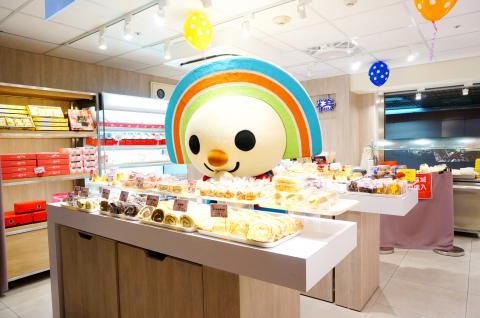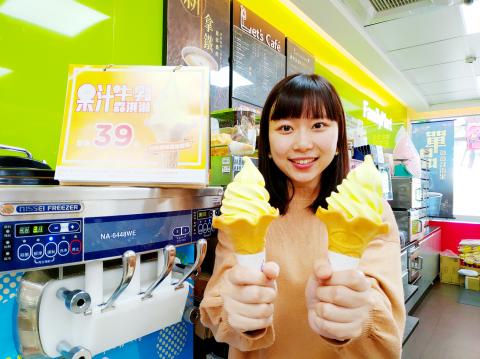Taiwan has the second-highest concentration of convenience stores of any country in the world. President Chain Store Corp (PCSC), which operates the 7-Eleven convenience store franchise in Taiwan, currently has 400 stores which do not open 24 hours, 365 days a year. Rival franchise FamilyMart has announced individual stores, which are experiencing special difficulties operating through the night, will be given a degree of flexibility to adjust their opening hours. Meanwhile Hi-Life International says its stores located within industrial or technology parks will be allowed to close on Sundays.
According to the Web site Distribution News, at the end of 2017 there were a total of 10,662 convenience stores in operation across Taiwan. This translates to an average of one store for every 2,211 persons. In this respect, Taiwan is second only to South Korea and ahead of Japan.
However, Taiwan shares a common problem with Japan: all of its industries are currently facing labor shortages. General manager of PCSC Huang Jui-tien last week announced that 400 of the 5,300 7-Eleven stores it operates nationwide currently do not open 24 hours a day. Huang said franchisees are able to submit an application to implement flexible opening hours, which is granted by head office so long as they can provide reasonable justification for doing so.

Photo courtesy of President Chain Store Corp
照片:統一超商提供
As of the end of February this year, PCSC’s biggest competitor, FamilyMart, has 3,357 stores nationwide. The company says it has always allowed some of its stores to use curtailed operating hours.
FamilyMart says that, when deciding whether a store should maintain 24-hour operation, there are a large number of factors to take into consideration. The company says it constantly monitors any changes to customers’ definition of “convenience” as well as their nocturnal needs. FamilyMart says it continues to explore a range of methods designed to efficiently satisfy customers’ demands, including developing tools to facilitate online shopping and testing a new home delivery service.
FamilyMart says that the greatest challenge currently faced by franchises is a shortage of labor. The company is providing support, last year opening a human resource recruitment center that helps franchisees find suitable staff to fill vacancies. The center also assists by providing training for new part-time staff, helping franchise managers to cultivate and retain talent. Head office is also currently testing a new system designed to parachute in staff at short notice in an emergency when franchises are unexpectedly left short-staffed. The company has 2,000 members of backup staff that can be deployed to provide assistance.

Photo: Lin Hsin-jo, Liberty Times
照片:自由時報記者林欣若
Hi-Life currently has 1,339 stores nationwide, of which 20 percent are not open 24 hours. The primary factor for consideration is whether the store is located within a shopping district or similar type of specially-designated area, such as a school or a military camp or within a factory complex. Within one of these areas, if there are special operating hours, or there is a significant variance in footfall between weekdays and weekends, stores are allowed to adjust their opening hours accordingly.
(Translated by Edward Jones, Taipei Times)
台灣便利商店密集度居全球第二,統一超商目前有四百家非二十四小時全年無休的門市;全家便利商店表示,只要單店提出夜間營業的特殊困難,會適度彈性調整營業時間;萊爾富甚至有在園區的門市假日不營業。
根據流通快訊統計,二○一七年底台灣連鎖便利商店數達一萬六百六十二家,平均每兩千兩百一十一人就有一家連鎖便利商店,僅次於韓國,更贏過日本。
不過,和日本一樣,台灣各行各業也都面臨人力缺口。統一超商總經理黃瑞典上週表示,統一超商目前在全台有五千三百家門市,其中有四百家門市非二十四小時經營;加盟者只要有合理原因就能向總部提出申請,總部對營業時間會有彈性做法。
統一超商的最大的競爭對手全家,截至二月底共有三千三百五十七家門市。全家表示,一直都有非二十四小時營業的店鋪。
全家指出,是否維持二十四小時營業,考量因素眾多,必須持續觀察消費者對於「便利的定義」以及「夜間需求」是否產生變化;目前全家持續開發自有支付工具線上購、測試店到宅外送等服務,來提出有效率滿足需求的各種方案。
全家強調,目前加盟店最大挑戰是缺人,為支援加盟者對於人力上的需求,總部自去年起即成立專屬的「人力招募中心」,為加盟者媒合合適人力,並由總部代為訓練新進兼職人員,協助加盟店長育才留才。目前也正在測試「緊急人力派遣系統」,當加盟店因意外而緊急出現人手不足的問題時,有兩千個備援人力可調度支援。
萊爾富目前全台超商共有一千三百三十九間門市,其中非二十四小時營業門市約二成,主要的考量是以商圈屬性為主,像特定商圈,以及學校、營區、廠房等特定區域,若特定時間或平假日的來客有明顯差異,該門市就會依照情況調整營業時間。
(中央社)
Follow Up
讀後練習
Questions (true or false)
1. Second only to Japan, Taiwan has the highest concentration of convenience stores per capita of any country in the world.
2. Franchisees of all three convenience store brands are given a large amount of freedom to set their own opening hours.
3. One-fifth of of Hi-Life convenience stores currently do not open 24 hours a day.
4. The biggest problem facing convenience stores in Taiwan is a shortage of labor.
5. FamilyMart now offers a home delivery service at all of its stores.
(Edward Jones, Taipei Times)

In an effort to fight phone scams, British mobile phone company O2 has introduced Daisy, an AI designed to engage phone con artists in time-wasting conversations. Daisy is portrayed as a kindly British granny, exploiting scammers’ tendency to target the elderly. Her voice, based on a real grandmother’s for authenticity, adds to her credibility in the role. “O2” has distributed several dedicated phone numbers online to direct scammers to Daisy instead of actual customers. When Daisy receives a call, she translates the scammers’ spoken words into text and then responds to them accordingly through a text-to-speech system. Remarkably, Daisy

Bilingual Story is a fictionalized account. 雙語故事部分內容純屬虛構。 Emma had reviewed 41 resumes that morning. While the ATS screened out 288 unqualified, she screened for AI slop. She could spot it a mile away. She muttered AI buzzwords like curses under her breath. “Team player.” “Results-driven.” “Stakeholder alignment.” “Leveraging core competencies.” Each resume reeked of AI modeling: a cemetery of cliches, tombstones of personality. AI wasn’t just changing hiring. It was draining the humanity from it. Then she found it: a plain PDF cover letter. No template. No design flourishes. The first line read: “I once tried to automate my

Every May 1, Hawaii comes alive with Lei Day, a festival celebrating the rich culture and spirit of the islands. Initiated in 1927 by the poet Don Blanding, Lei Day began as a tribute to the Hawaiian custom of making and wearing leis. The idea was quickly adopted and officially recognized as a holiday in 1929, and leis have since become a symbol of local pride and cultural preservation. In Hawaiian culture, leis are more than decorative garlands made from flowers, shells or feathers. For Hawaiians, giving a lei is as natural as saying “aloha.” It shows love and

1. 他走出門,左右看一下,就過了馬路。 ˇ He walked outside, looked left and right, and crossed the road. χ He walked outside and looked left and right, crossed the road. 註︰並列連接詞 and 在這句中連接三個述語。一般的結構是 x, y, and z。x and y and z 是加強語氣的結構,x and y, z 則不可以。 2. 他們知道自己的弱點以及如何趕上其他競爭者。 ˇ They saw where their weak points lay and how they could catch up with the other competitors. χ They saw where their weak points lay and how to catch up with the other competitors. 註:and 一般連接同等成分,結構相等的單詞、片語或子句。誤句中 and 的前面是子句,後面是不定詞片語,不能用 and 連接,必須把不定詞片語改為子句,and 前後的結構才相等。 3. 她坐上計程車,直接到機場。 ˇ She took a cab, which took her straight to the airport. ˇ She took a cab and it took her straight